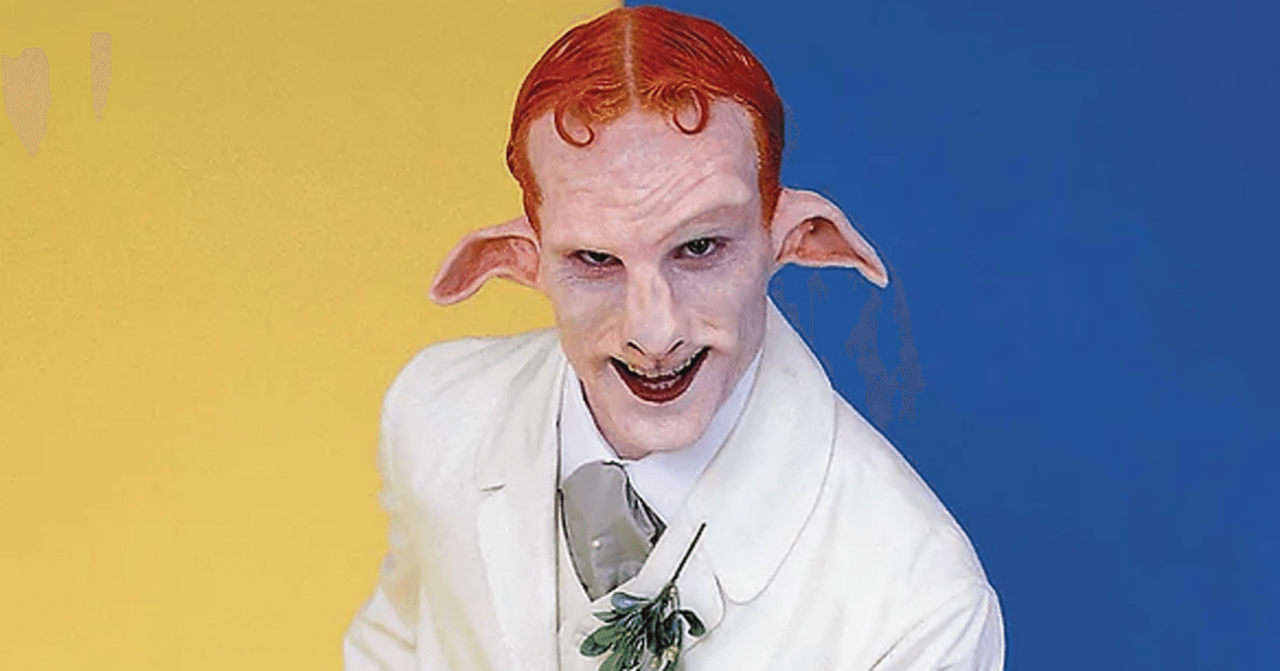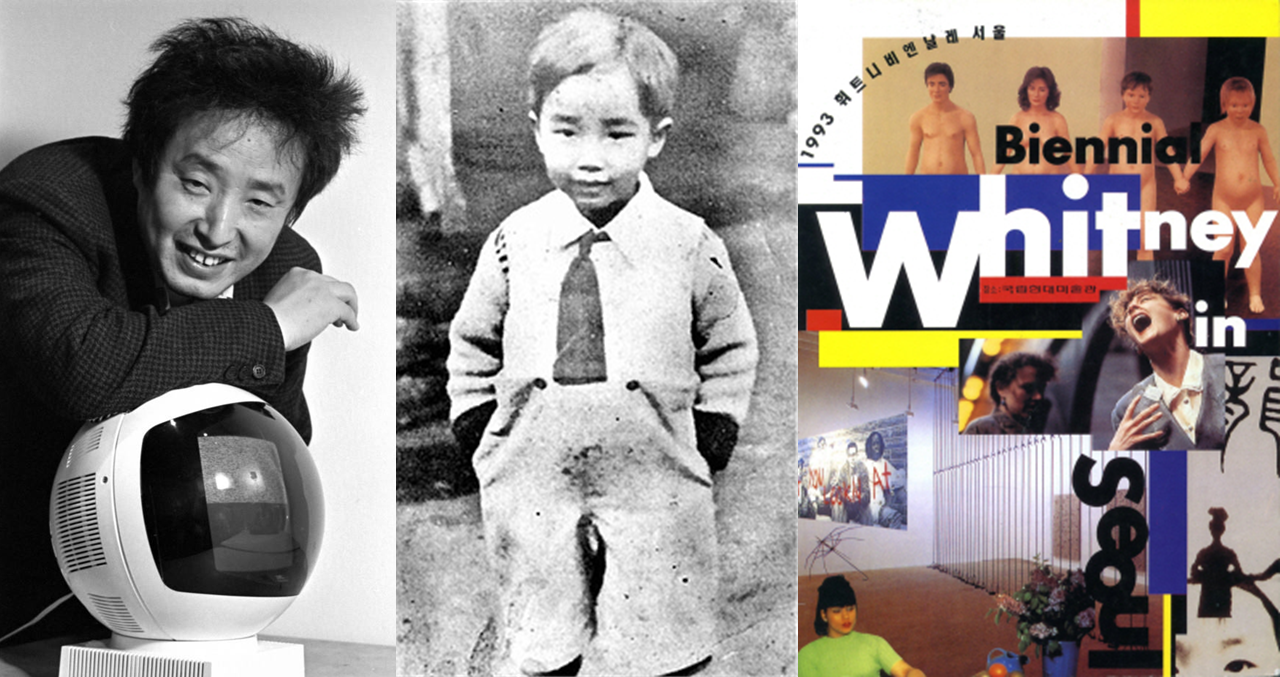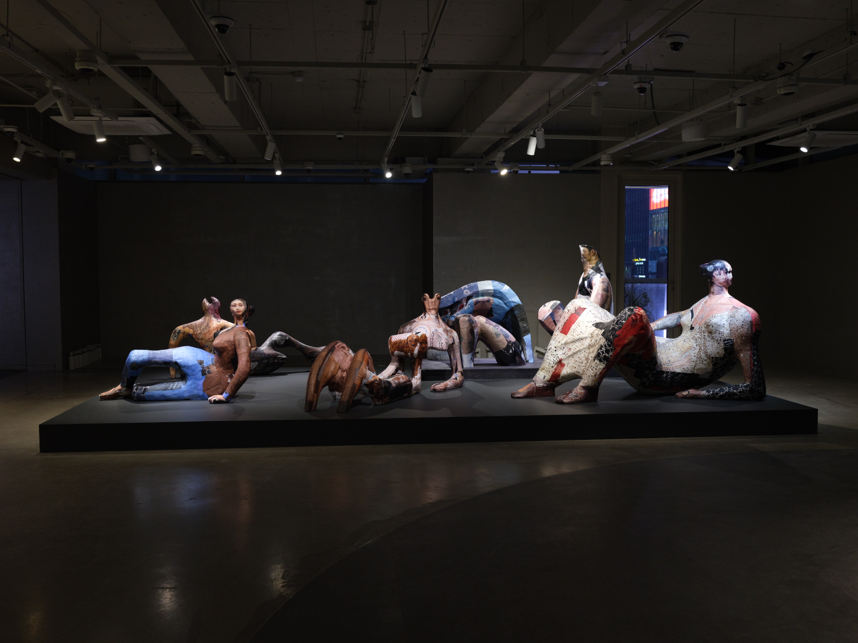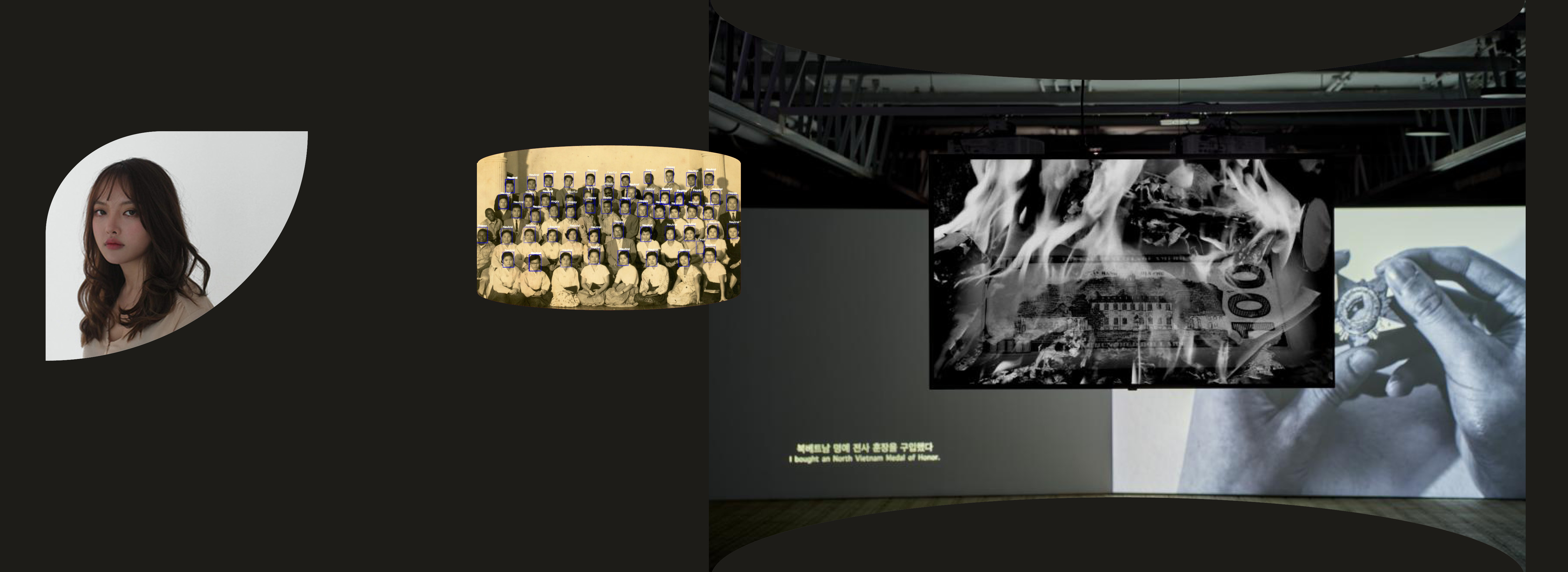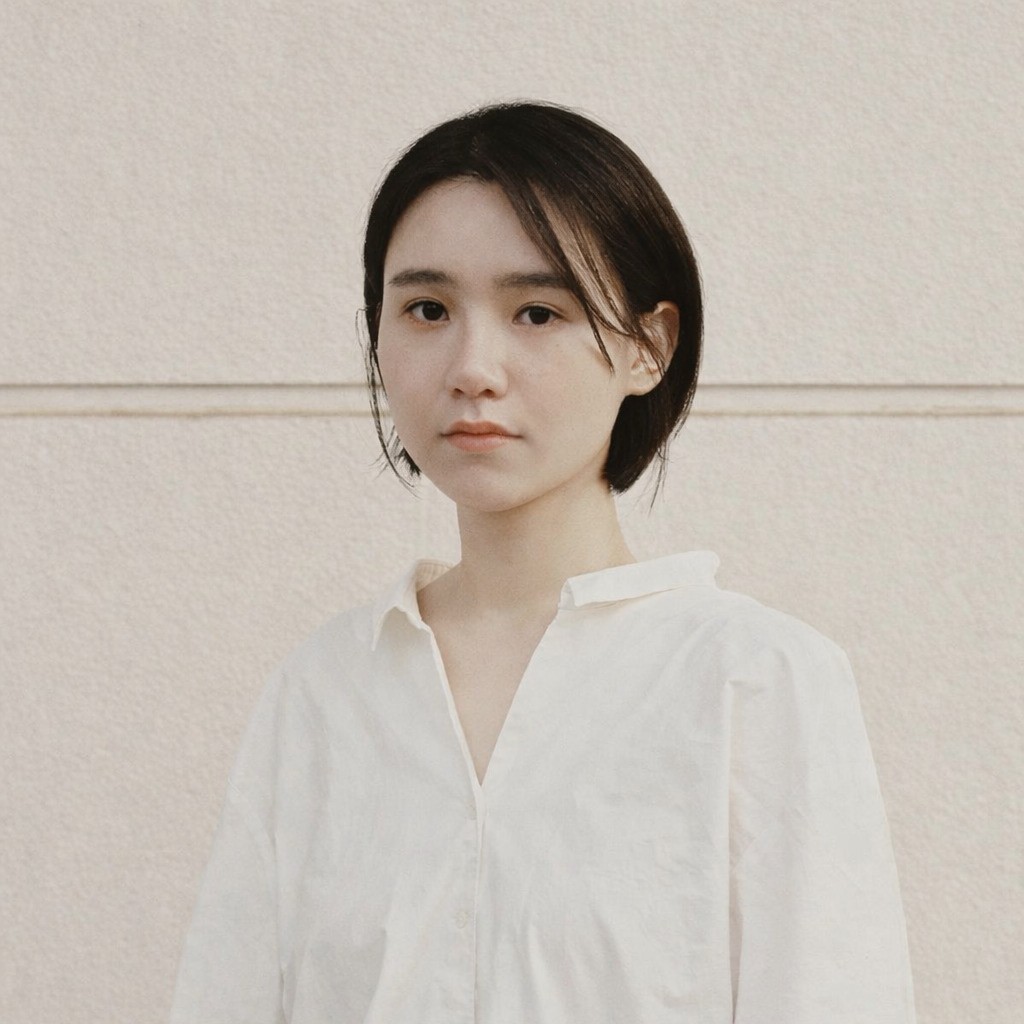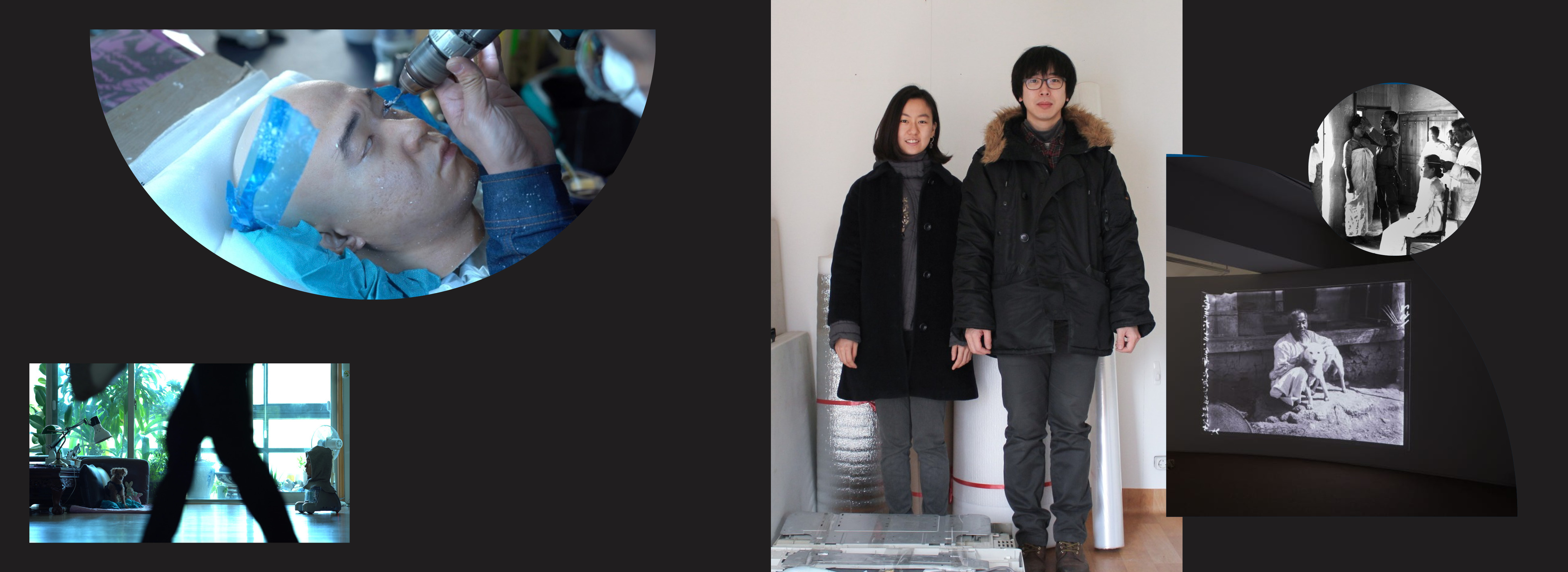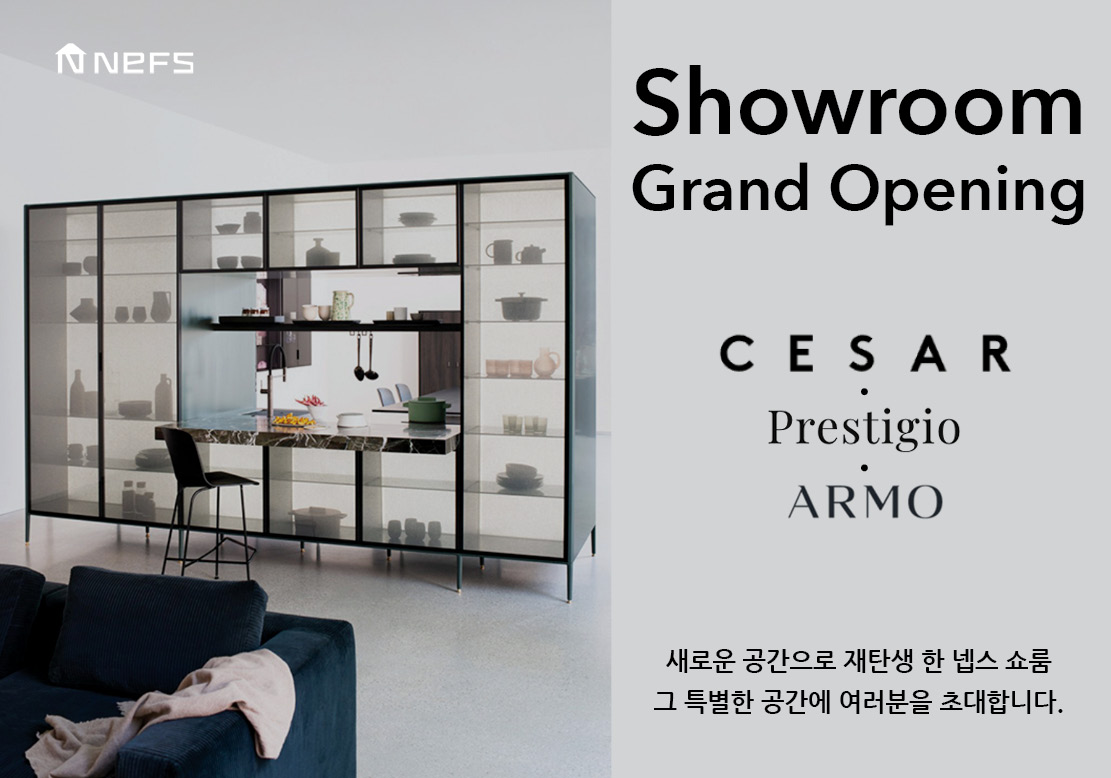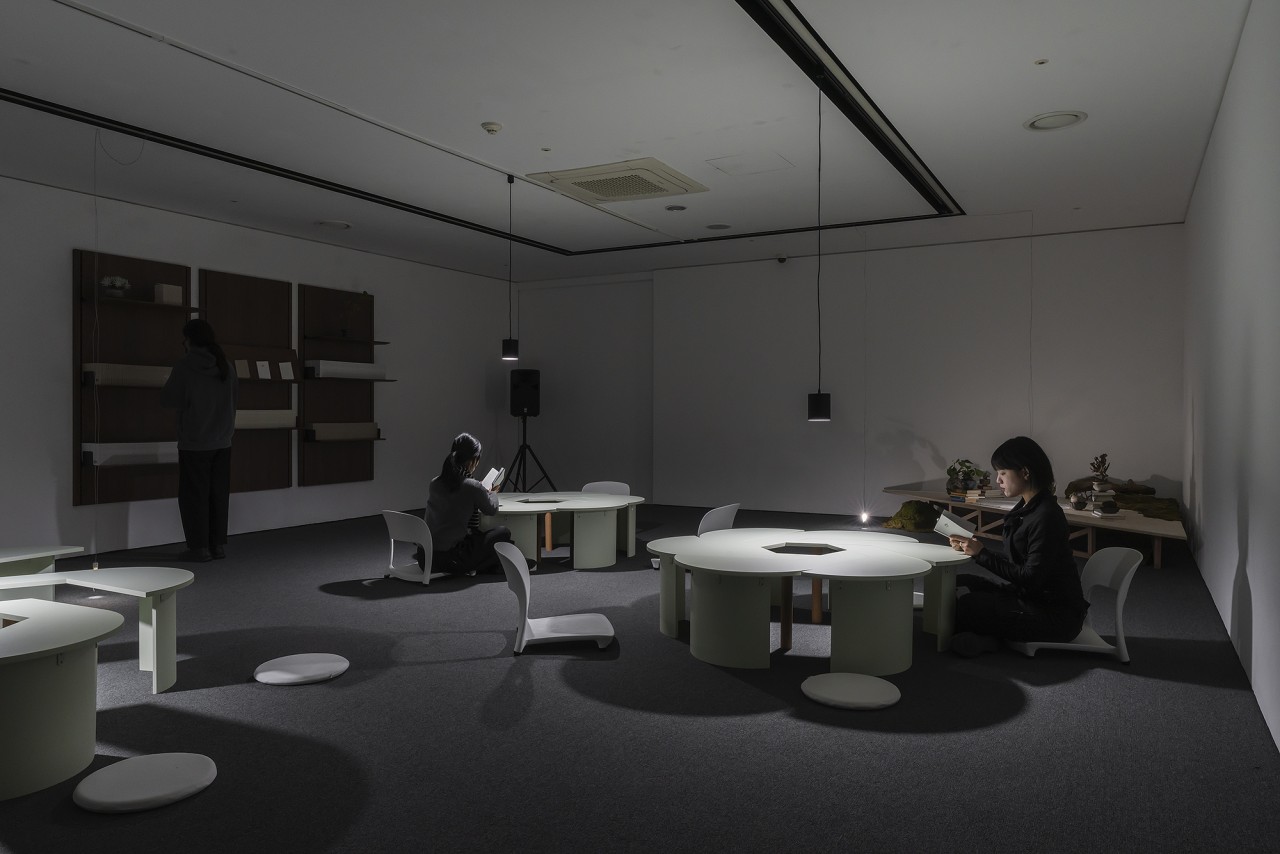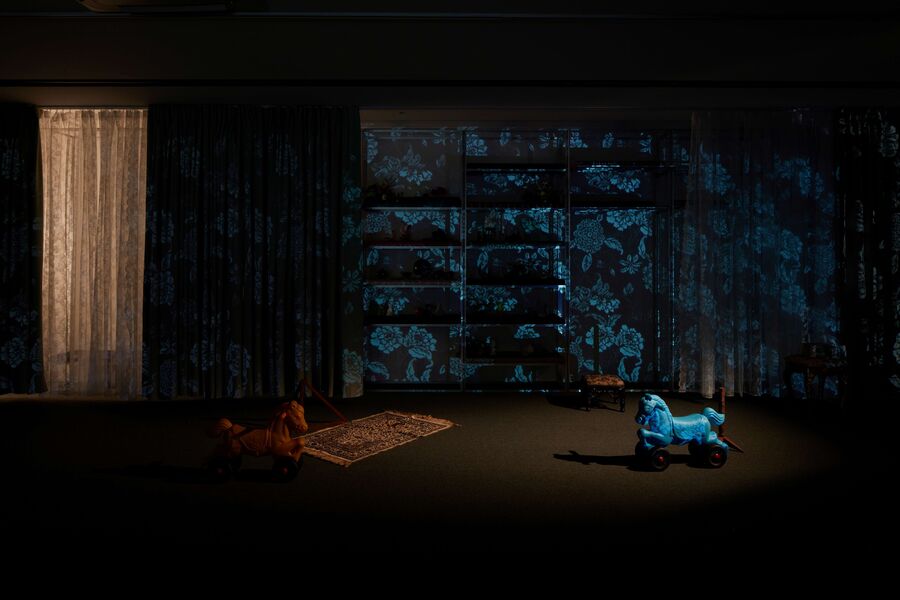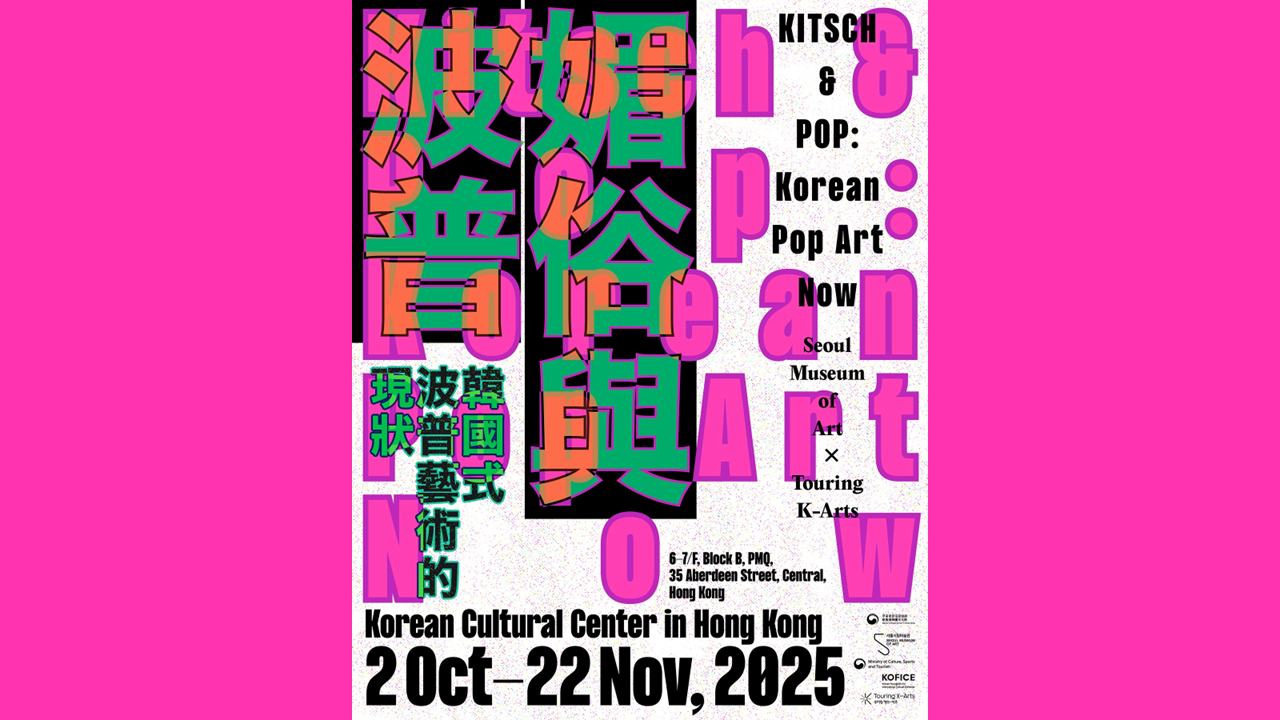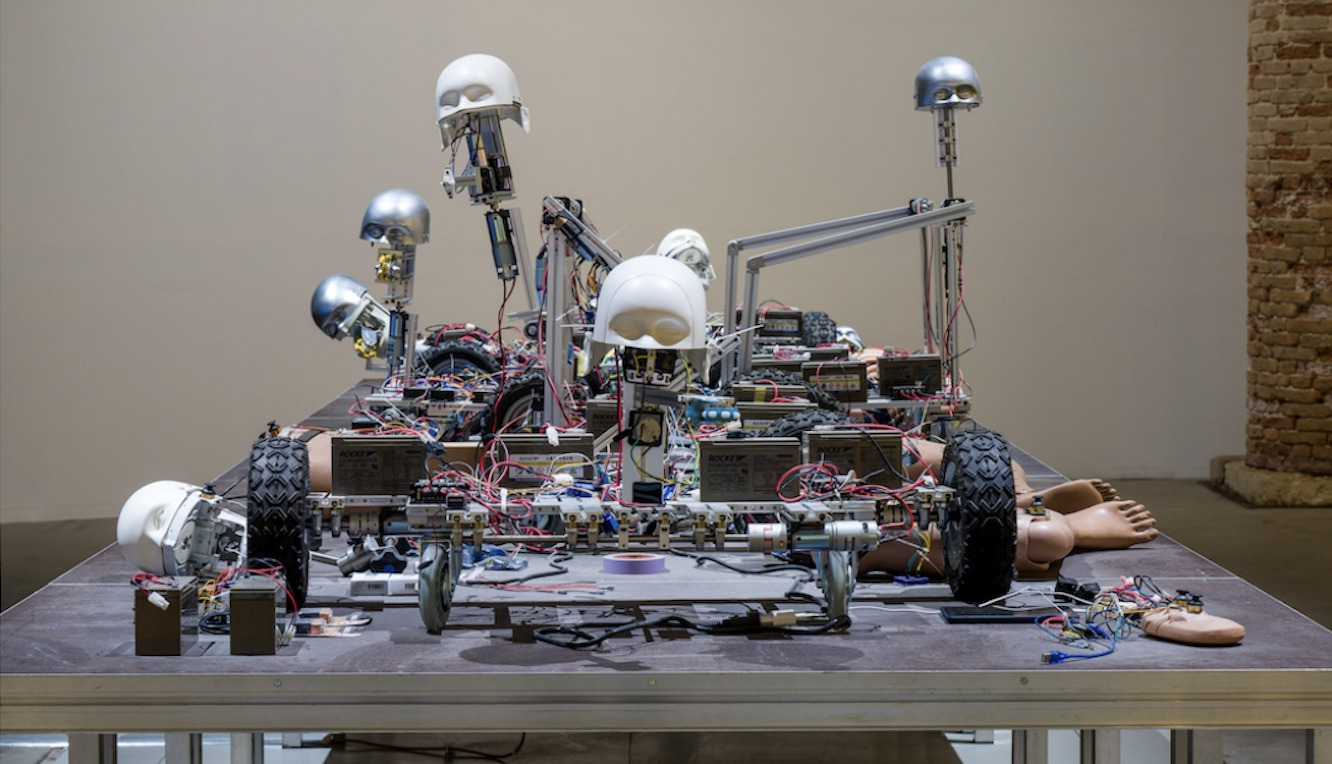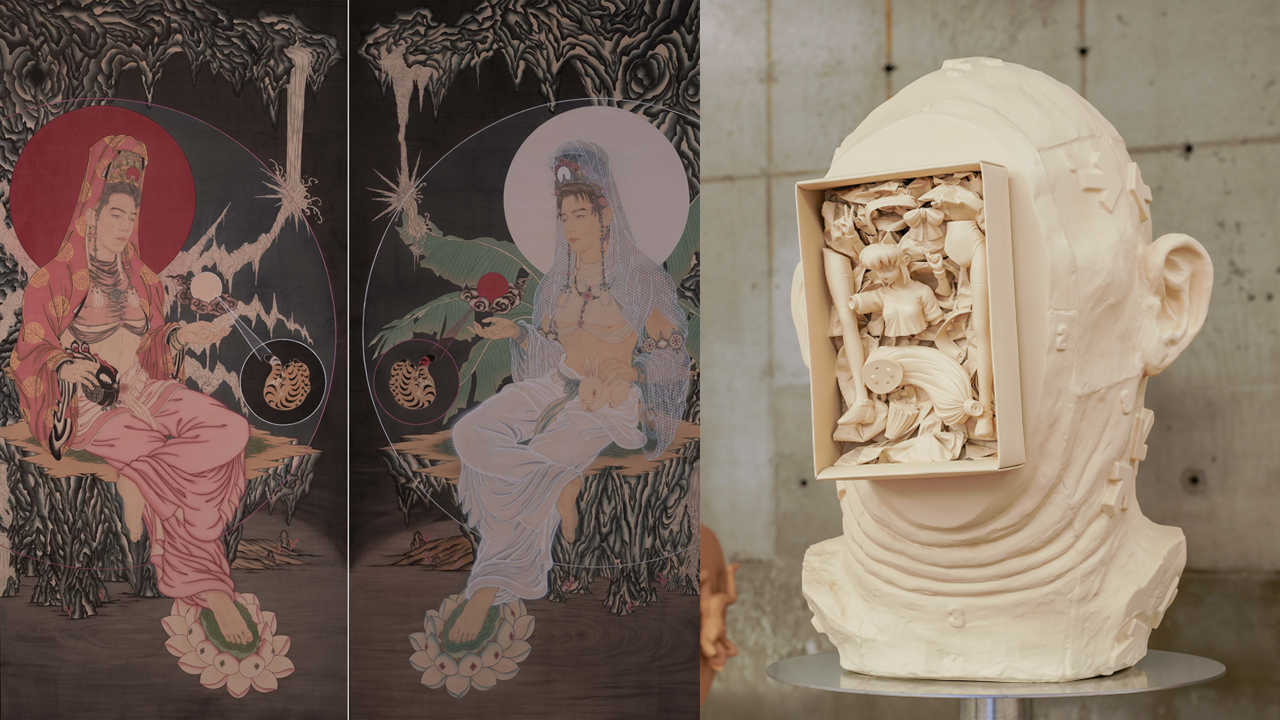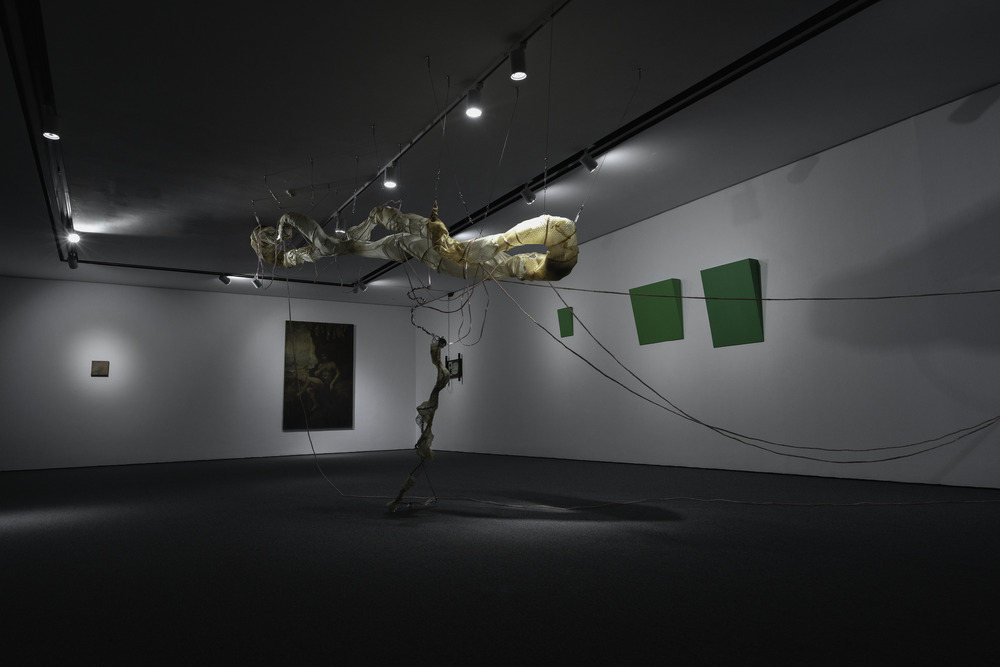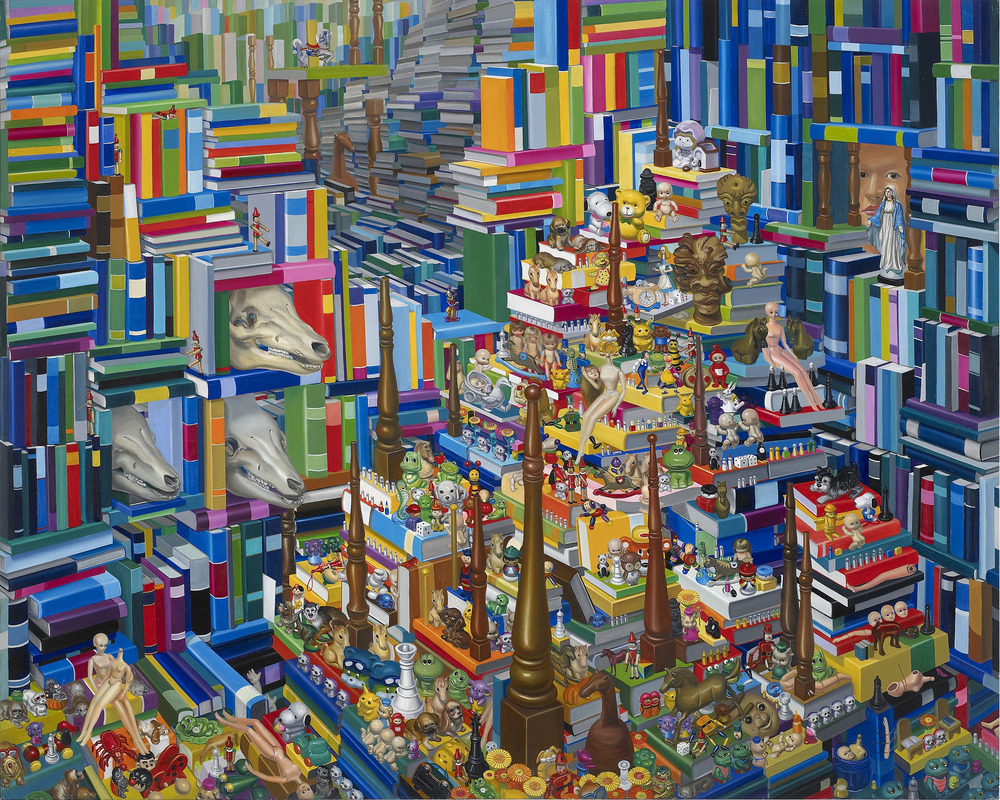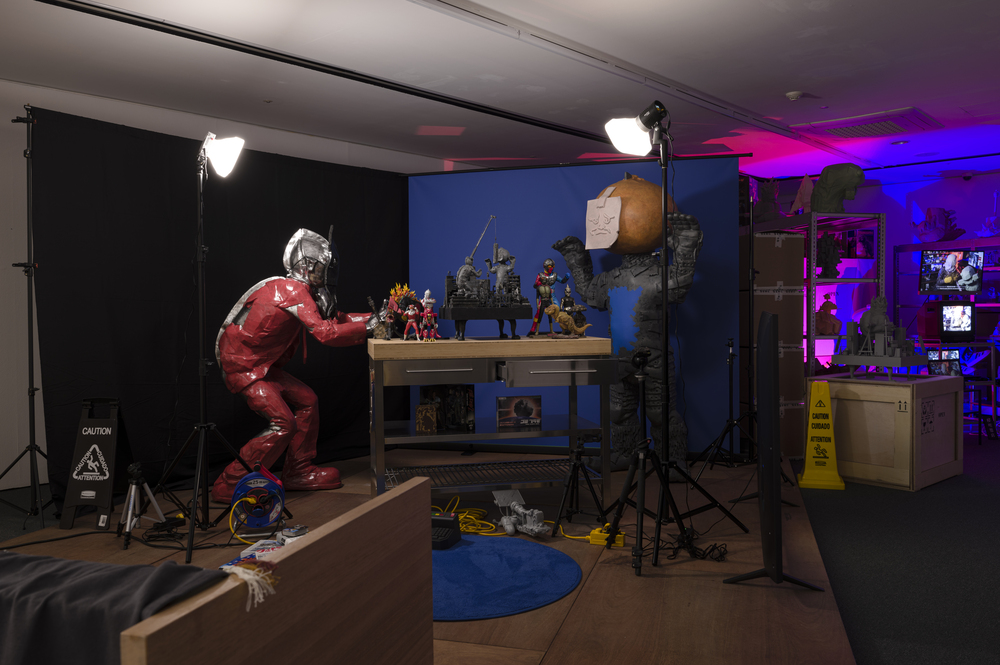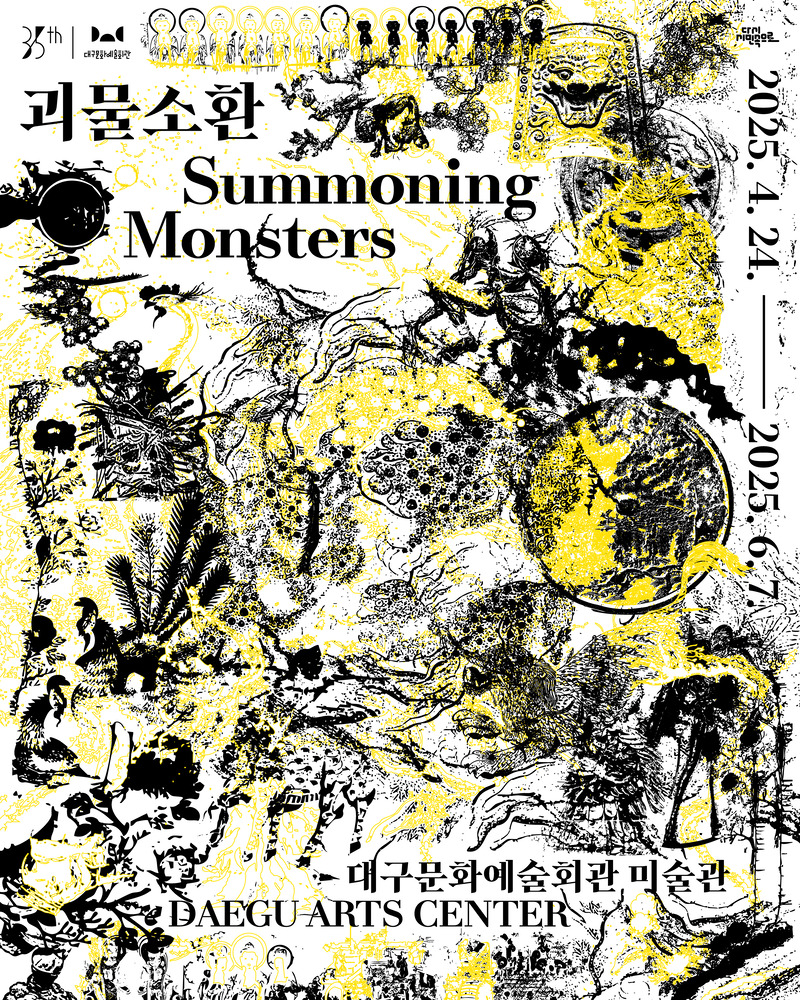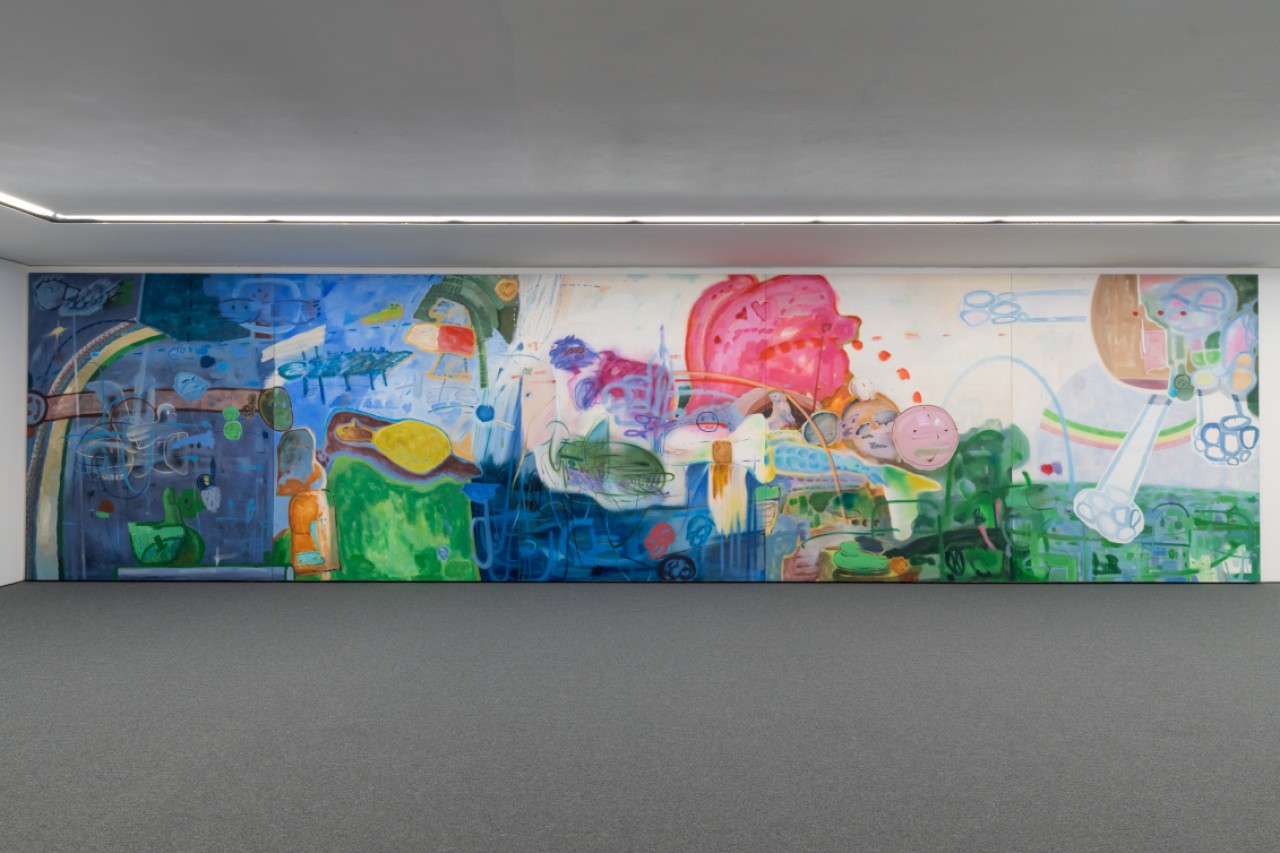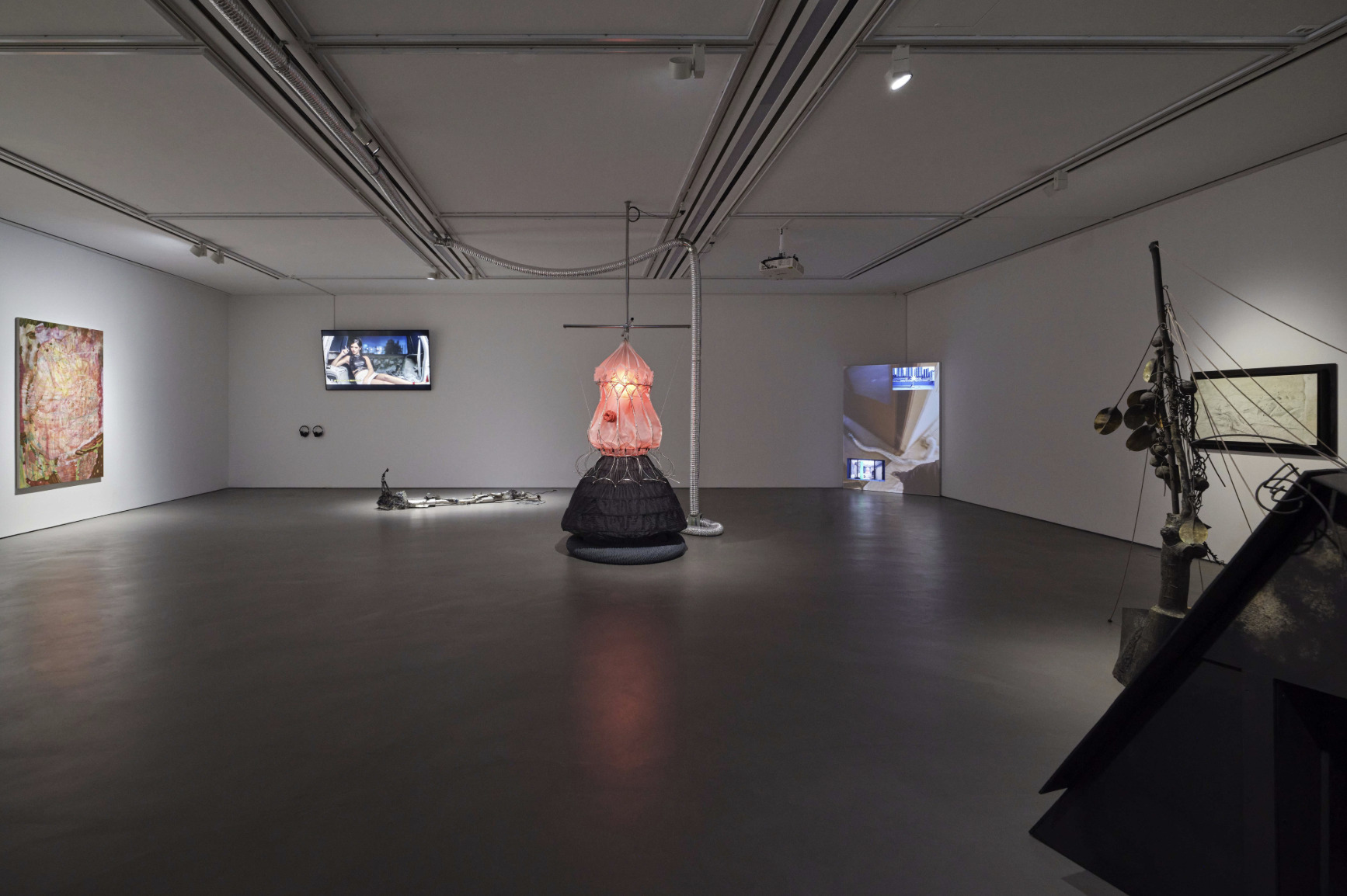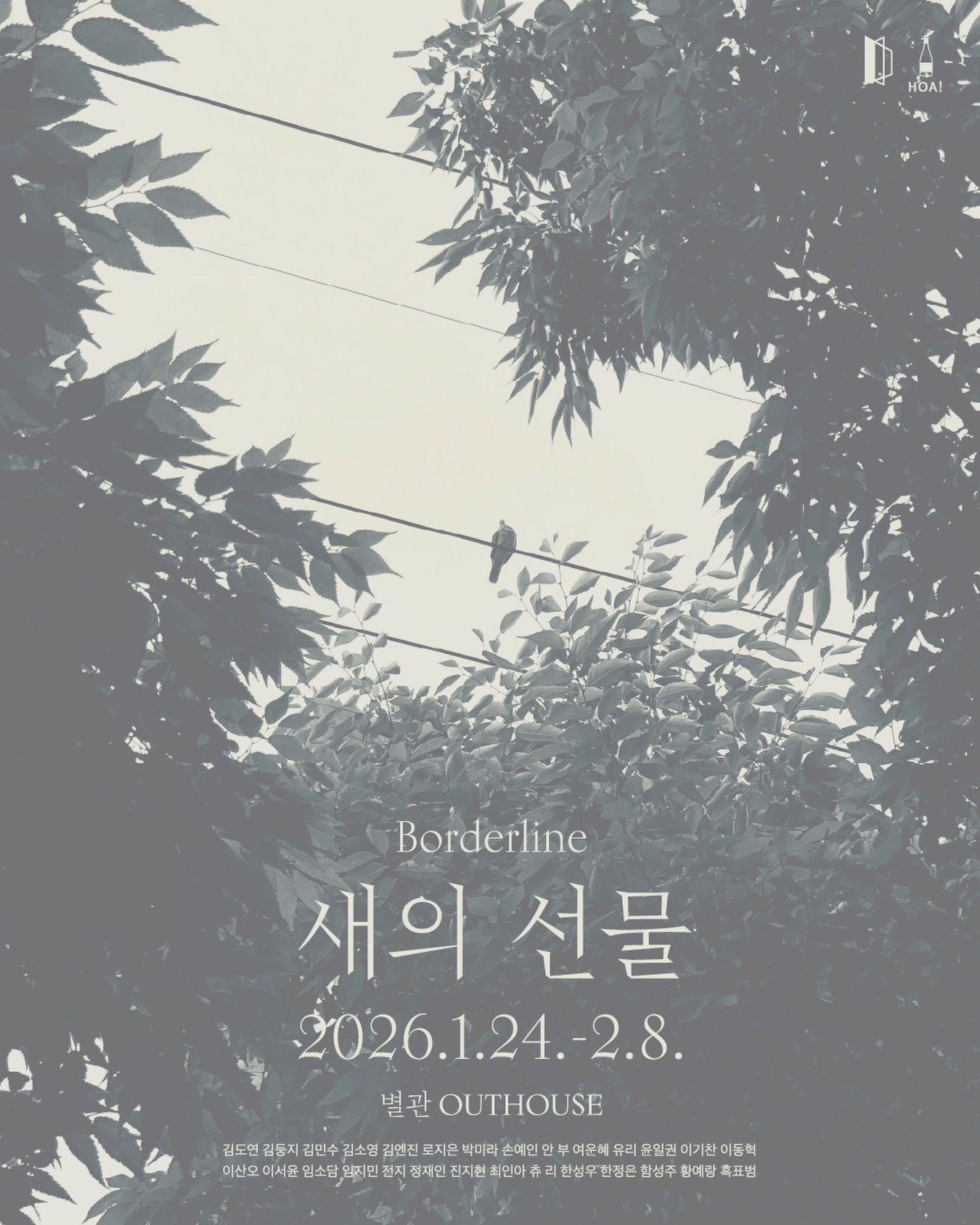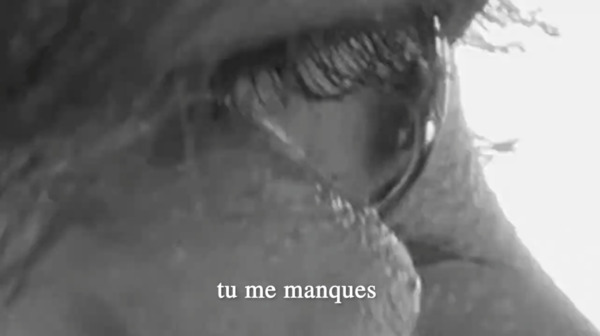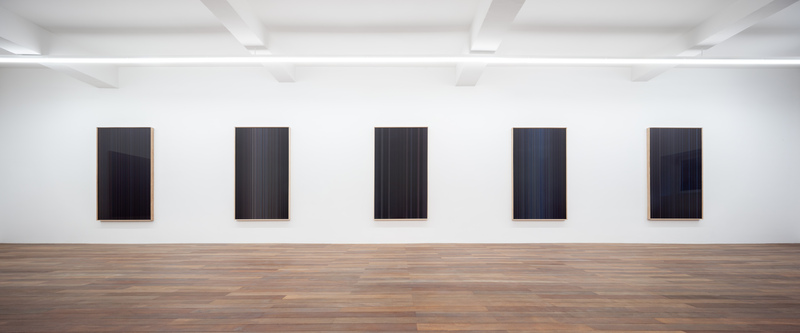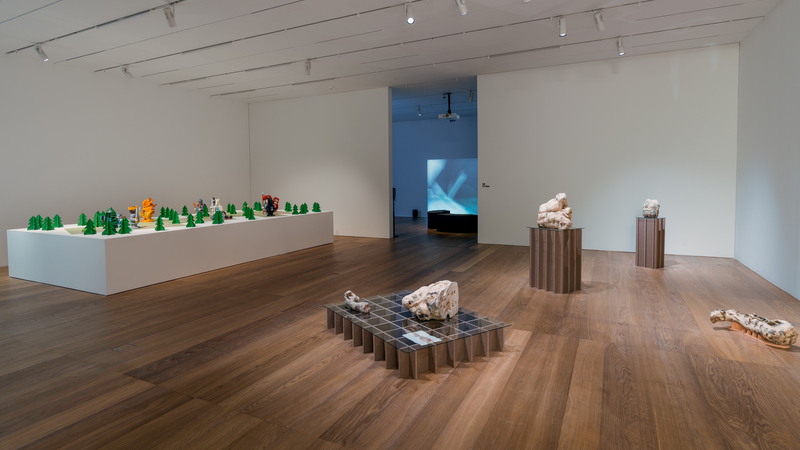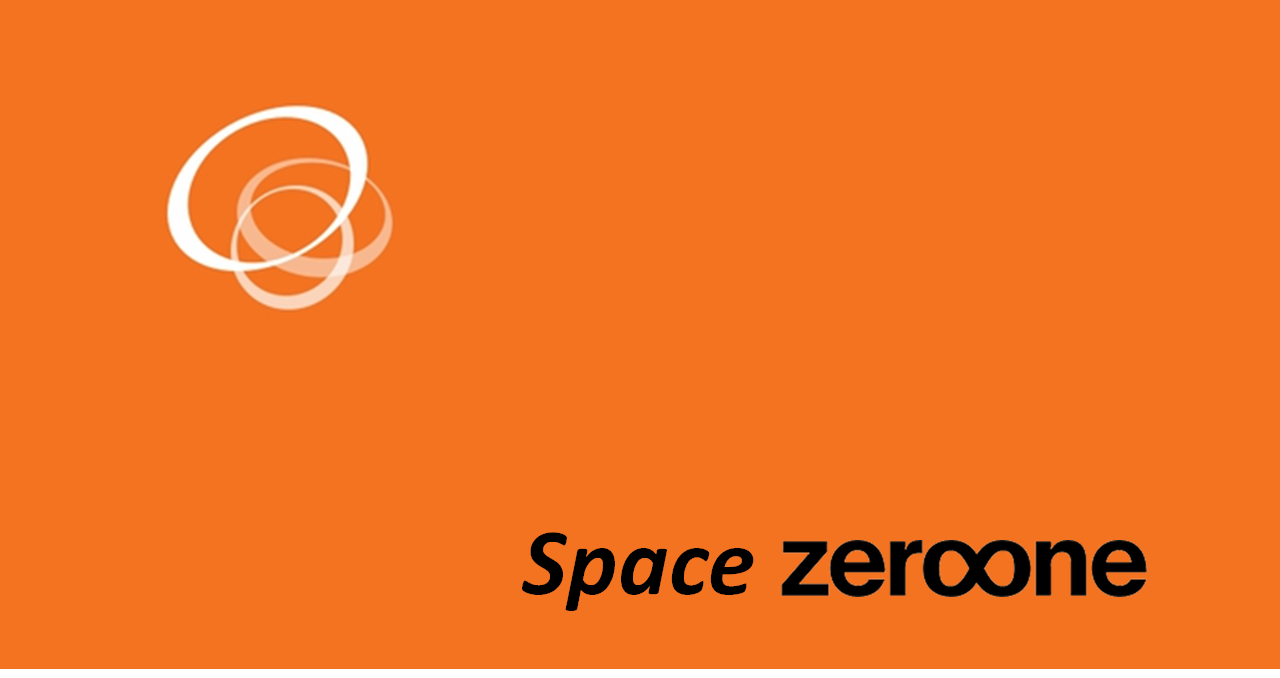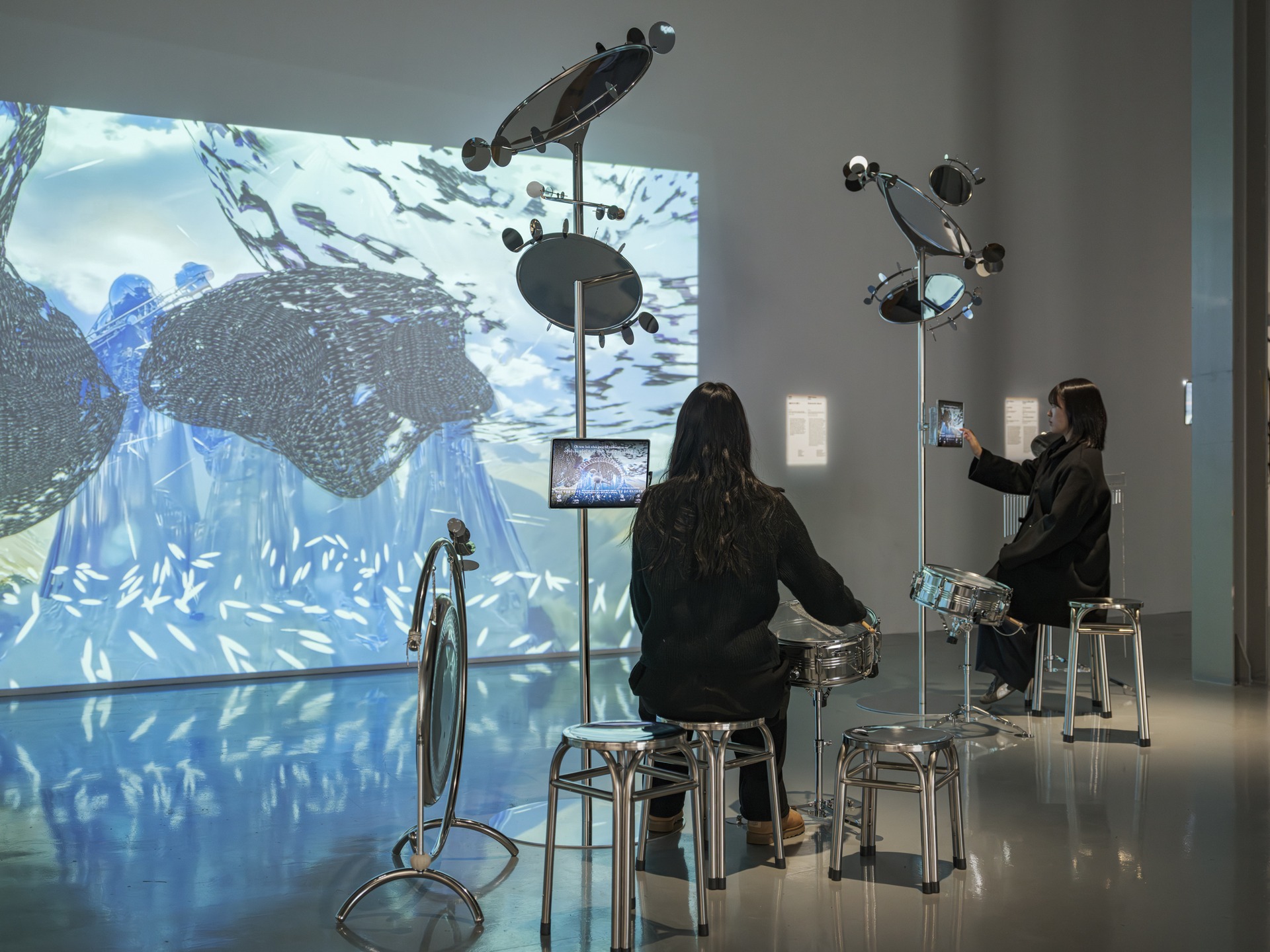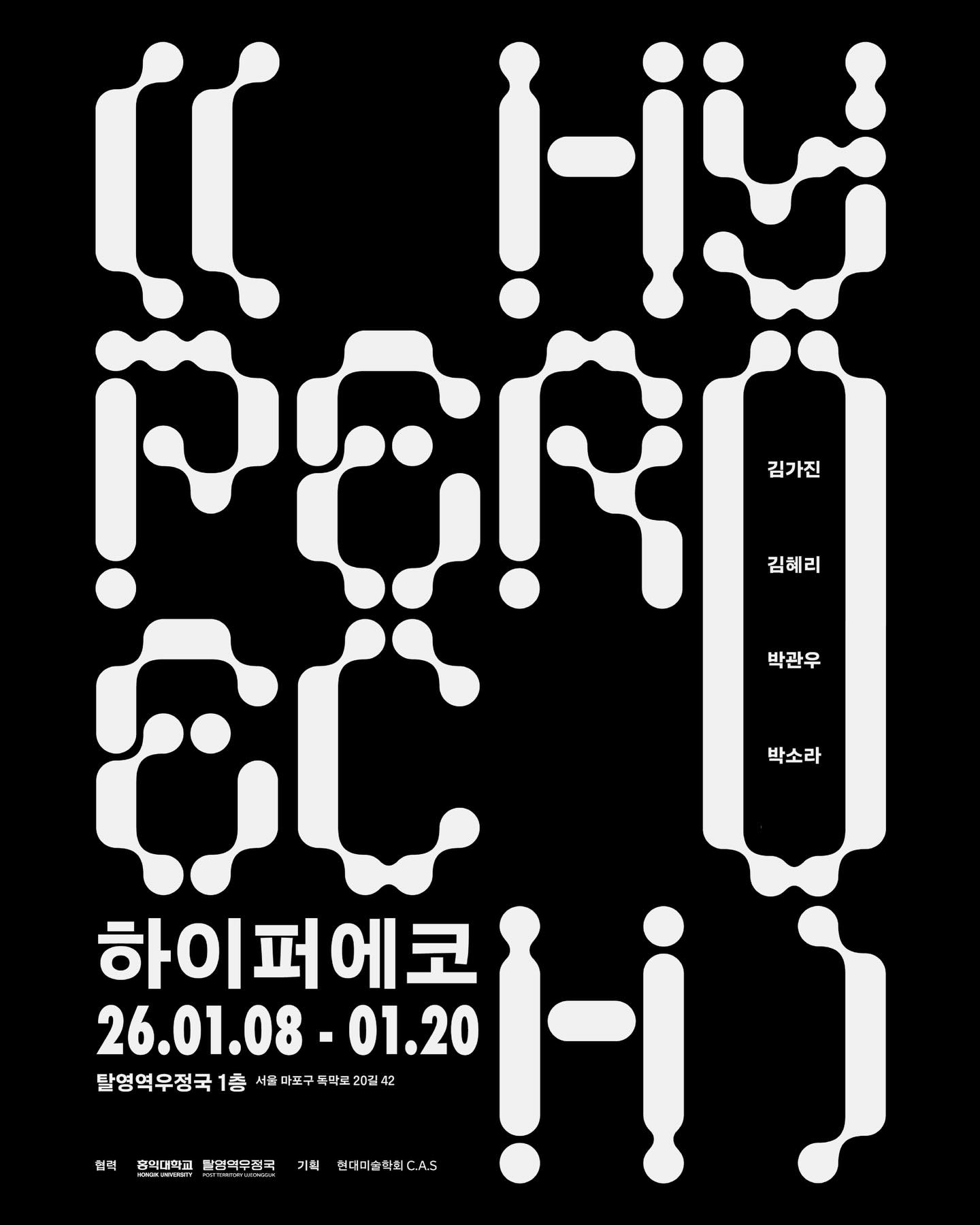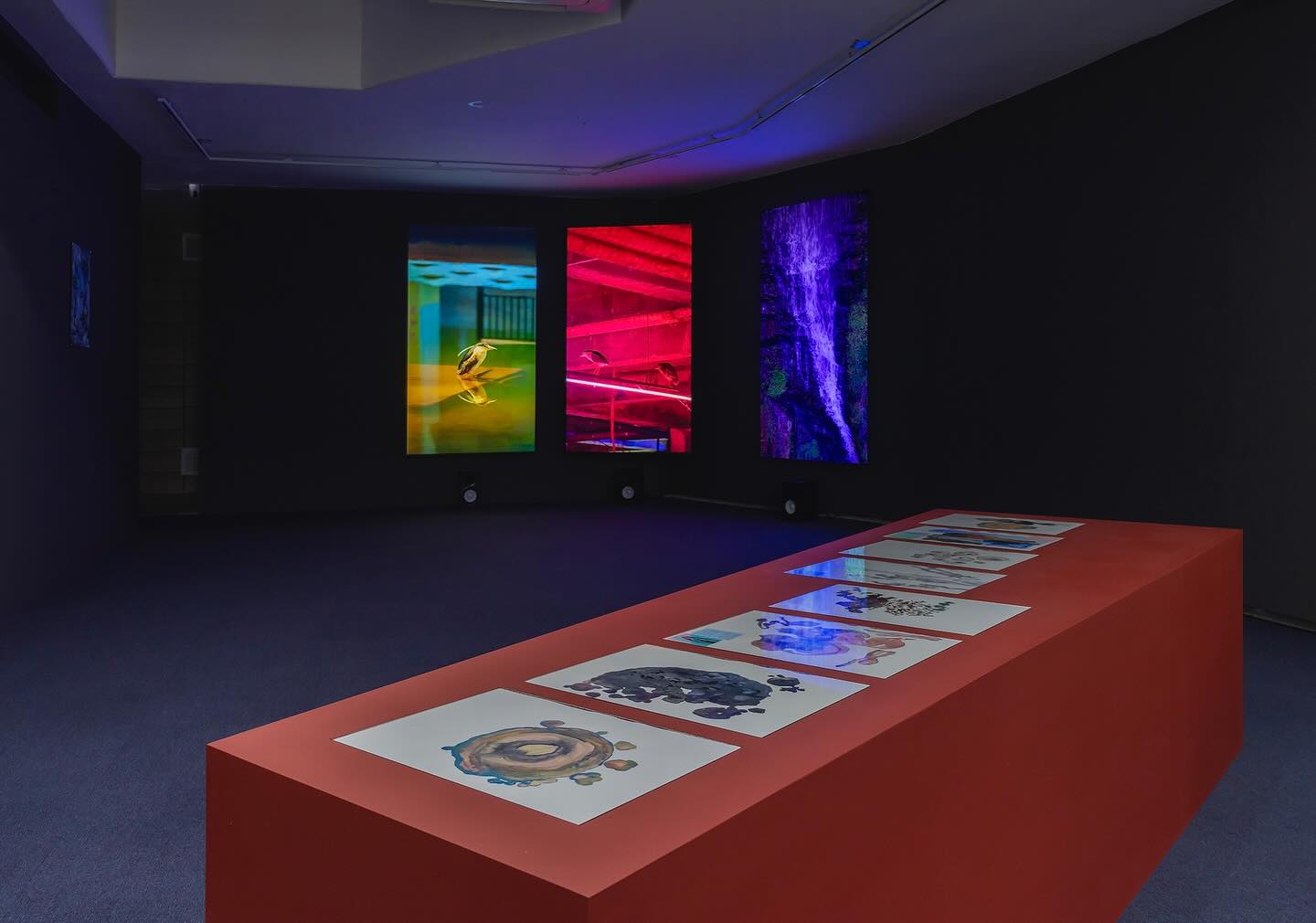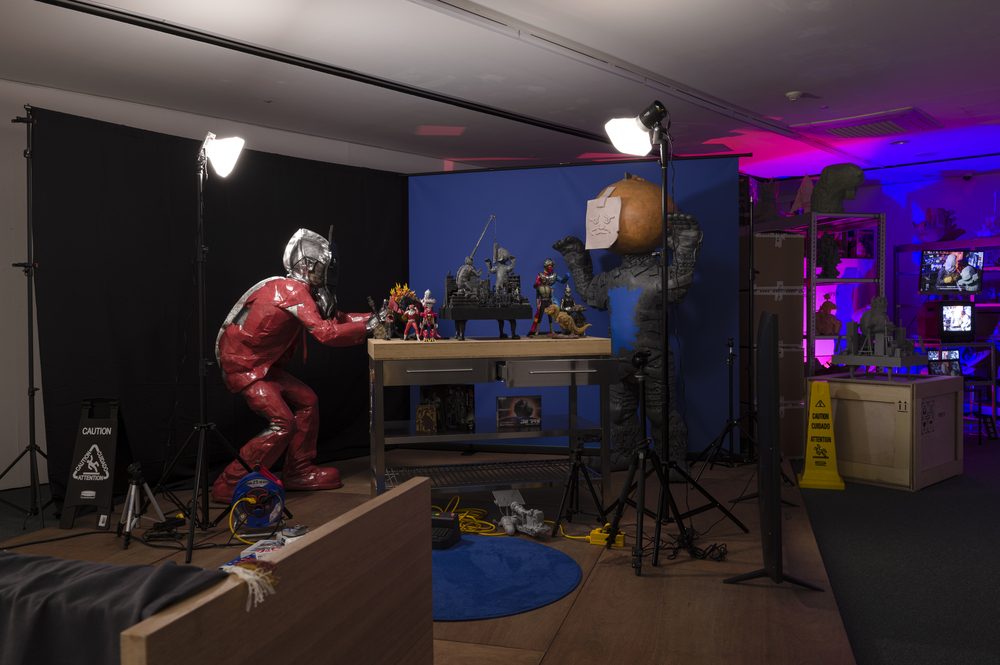 Installation view of 《Dreary
Tangerine》 ©Perigee Gallery
Installation view of 《Dreary
Tangerine》 ©Perigee GalleryPerigee Gallery presents a solo exhibition 《Dreary Tangerine》 by Don Sunpil, on view through July 26.
Don Sunpil's exhibition, which began with his interest in
Tokusatsu (特撮), has been
given the unique title 《Dreary Tangerine》. This was the name of a fictional book that
appeared in a Japanese manga translated into Korean. It emerged as a
mistranslation by the translator, who failed to catch the original pun in the
Japanese version. Although a revised edition later corrected it with a
footnote, the awkward word had already taken root. The artist finds such
translation errors intriguing.
Tokusatsu (特撮) refers to a process combining various attempts to recreate
fictional time-spaces in reality—including those that have not yet arrived or
have already disappeared. What the artist finds particularly compelling is
that, even after filming is complete, the objects involved still remain as
tangible entities. Masks, suits, monster bodies, diorama sets portraying
cityscapes—these are all created while negotiating unavoidable constraints of
necessity and limitation. Even after shooting concludes, they remain in reality,
preserving strange traces of their fictional forms.
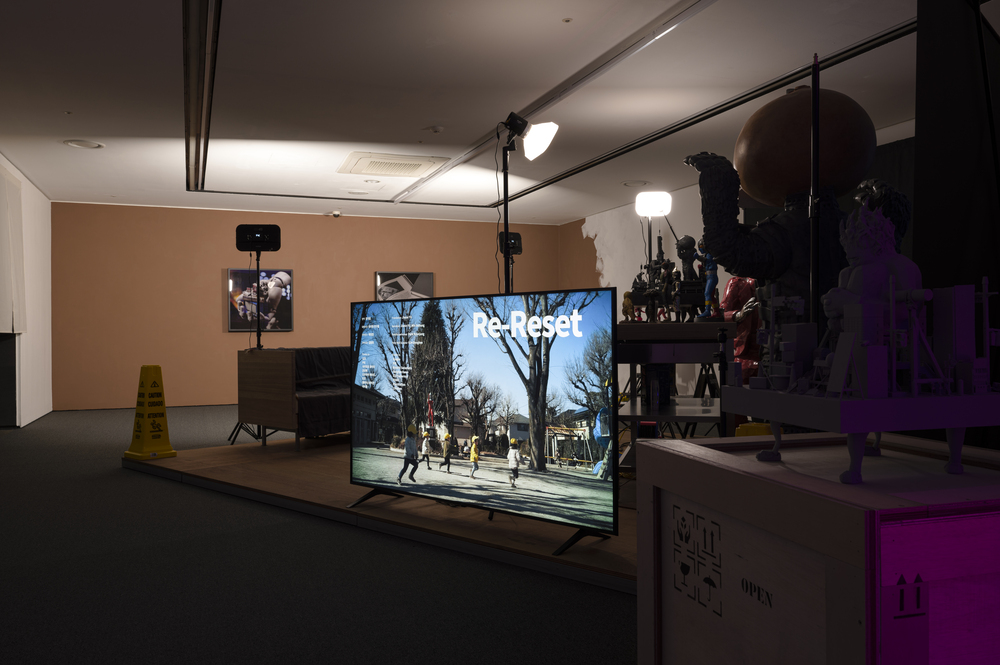 Installation view of 《Dreary
Tangerine》 ©Perigee Gallery
Installation view of 《Dreary
Tangerine》 ©Perigee GalleryMeanwhile, the exhibition intricately unfolds a cyclical
structure in which stories that begin with personal life, hobbies, or work
disperse into sculpture, writing, and video—only to return again as objects.
The artist does not forcibly seal the gaps between text and form, the external
transformations of materiality, or the moments when surfaces crack open.
Instead, these are revealed as they are. Maintaining a precisely measured
distance, the artist repeatedly begins anew from what emerges during the act of
observation.
The study of figurines offers a compelling example that
encapsulates the structure and character of Tokusatsu. The artist analyzes not
only the precise reproduction of a figurine’s appearance but also the
coexisting elements that deviate from realistic proportions and balance. This
approach can be perceived differently depending on the viewer—beautiful and
alluring to some, strange and uncanny to others, as a peculiar hybrid form.
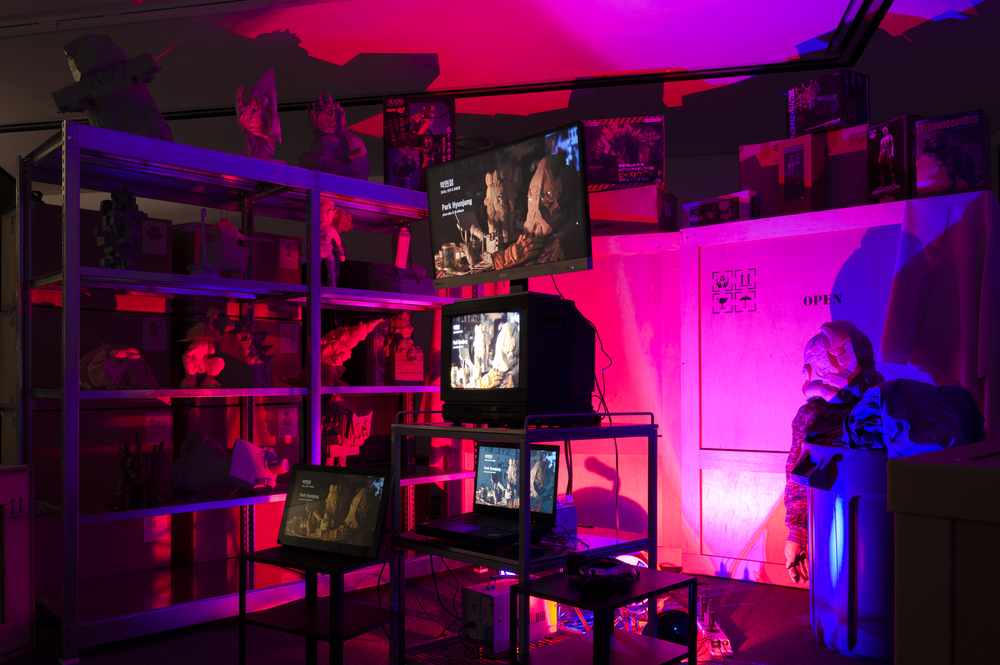 Installation view of 《Dreary
Tangerine》 ©Perigee Gallery
Installation view of 《Dreary
Tangerine》 ©Perigee GalleryThe artist follows Tokusatsu unfolding what they perceive
exactly as it is, without exaggeration or omission. This becomes an act of
expressing something not yet clearly defined, allowing the audience to see what
can be seen, and feel what can be felt.
In the exhibition, viewers will each be drawn to different
elements. We are prompted to make choices among various points, and the errors,
misinterpretations, and inevitable misunderstandings that follow are accepted
as part of the natural process. It is through this that a new foundation is
laid—reconfiguring time and space in layered dimensions—and in doing so, opens
the door to new possibilities of creation.



